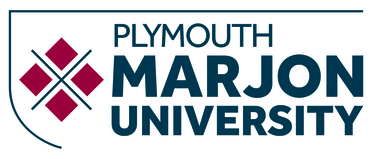Re-assessing sport-for-development: Moving beyond mapping the territory.
Beacom, Aaron and Levermore, Roger (2011) Re-assessing sport-for-development: Moving beyond mapping the territory. International Journal of Sport Policy and Politics, 4 (1). pp. 125-137. ISSN 1940-6940
|
Text
Re-assessing sport-for-development Moving beyond ‘mapping the territory’.pdf - Submitted Version Download (406kB) | Preview |
Abstract
Over the past decade, as the efficacy of many development interventions was being challenged, sports-based development initiatives appeared to offer alternative conduits for addressing health, education and other developmental concerns. We have, over the past 5 years, contributed to an emerging body of literature, which has explored the rationale, structure and delivery frameworks underpinning this so-called sport-for-development movement. Commenting on the literature, Lindsey and Grattan are critical of the overt focus on ‘Northern’ actors engaged with sport-for-development programmes and postulate a ‘decentred’ approach (that encompasses a more nuanced understanding of ‘Southern voices’) thus broadening our comprehension of the development process. This article constitutes our response to Lindsey and Grattan's contentions, while also taking into account Darnell and Hayhurst's rejoinder, which advocates a refocusing on the global hegemony of key development actors and a critical analysis of Northern-led development initiatives. We argue that both papers make valuable contributions, promoting the theorizing of sport-for-development discourse through what are in many respects, methodologically rigorous complementary perspectives. Having examined the contribution of these two papers, we consider key issues that are likely to characterize the future trajectory of sport-for-development discourse thus taking the debate beyond ‘mapping the territory’. These issues include the power relations in sport-for-development; the evolving contribution of sports INGOs as key actors in sport-for-development; and the challenge of evaluating development processes. This article highlights the importance of engaging with the established mainstream development discourse that provides an extensive body of theory through which to construct a critical assessment of sport-for-development. This is evident, for example, in contending theories relating to the process of evaluating the impact of development interventions. This article concludes by highlighting the importance of listening to the voices of all stakeholders involved in the sport-for-development process if the significance of such interventions is to be fully understood.
| Item Type: | Article |
|---|---|
| Keywords: | sport,development, power,stakeholders,evaluation,agency |
| Divisions: | Sport |
| Depositing User: | Mrs Sharon Holley |
| Date Deposited: | 12 Nov 2013 15:42 |
| Last Modified: | 10 Dec 2020 11:48 |
| URI: | https://marjon.repository.guildhe.ac.uk/id/eprint/6293 |
| Related URLs: |
http://www.tand ... 940.2011.627362
(Publisher URL)
|
Actions (login required)
 |
Edit Item |

